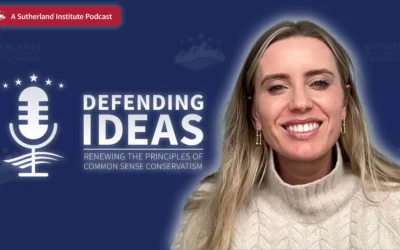
Written by William C. Duncan
February 16, 2022
Among the critical issues that the justice who replaces Stephen Breyer will help decide is how religious freedom will be protected. How did Justice Breyer approach these issues during his service on the court?
One analysis collected some of the important decisions on religious freedom in which Breyer was involved. Many involved questions about the proper relationship between the state and religious displays, but some helped shape religious freedom protections.
In 1997, Breyer endorsed a very strong position on protecting religious freedom. Congress had enacted the Religious Freedom Restoration Act (RFRA) in 1993 in response to a 1990 decision, Employment Division v. Smith, which adopted a new, narrow interpretation of the religious freedom clause of the First Amendment. RFRA directed state and federal governments to apply the prior, more protective, legal standard for protection of religious practice.
The application of RFRA to state actions was challenged in court. In the resulting ruling, City of Boerne v. Flores, the court said Congress could not direct state government actions. Breyer joined the dissent, criticizing the narrow Smith ruling and arguing that states should not be able to burden religious exercise without a compelling reason.
In 2012, Breyer joined the unanimous ruling in Hosanna-Tabor Evangelical Lutheran Church and School v. EEOC, which clarified the government could not dictate who would serve as ministers of churches or religious organizations.
In 2014, Breyer joined a dissent in Burwell v. Hobby Lobby, which involved a challenge by a chain of craft stores owned by a religious family to a mandate that required them to pay for drugs that the Hobby Lobby owners believed caused abortions. The majority of the court held the mandate violated the Religious Freedom Restoration Act. The dissenters argued that a for-profit corporation should not be extended religious freedom protections, but that these should extend only to individuals and religious organizations.
In 2017, Breyer was part of the majority in Trinity Lutheran Church v. Comer, which held that the state of Missouri could not single out religious schools for exclusion from a playground safety program open to all other schools.
In 2018, Breyer also was part of the majority in Masterpiece Cakeshop v. Colorado Civil Rights Commission. In this case, the majority ruled that a religious baker who had been penalized by the state of Colorado for declining to create a cake for a same-sex wedding had been subject to unconstitutional discrimination. Breyer also supported a separate opinion written by Justice Elena Kagan which stressed the unique hostility with which the baker had been treated by the state Civil Rights Commission.
In four 2020-21 religious freedom decisions, Breyer was only in dissent once: He joined the majority in Tanzin v. Tanvir, to rule that someone whose religious freedom was infringed could sue for monetary damages; in Our Lady of Guadalupe School v. Morrissey-Berru, which held that teachers who promulgated faith at religious schools could not ask the courts to second-guess the school’s personnel decisions; and in Fulton v. City of Philadelphia, which held the city had discriminated against Catholic Social Services by making the agency’s participation in providing foster care contingent on abandoning a portion of its religious teachings. Breyer dissented in Espinoza v. Montana Department of Revenue, which held Montana could not exclude religious schools from a tax credit program available to other schools.
Most recently, Breyer has tended to side with the state in cases brought by churches to challenge COVID restrictions. In contrast to the majorities in these cases, Breyer has supported greater deference to state restrictions.
On the whole, Breyer was sympathetic to religious freedom claims, but not uniformly. One thoughtful analysis suggests that Breyer was “seeking compromise” in these cases and that this explains why he “joined with conservatives nine of the 13 times the court ruled in favor of religious freedom from 2006 to 2020.” By joining the opinions, the analysis suggests, Breyer and Kagan “pulled the rest of the majority toward the middle. Their commitment to compromise helps explain why the court’s faith-related rulings are more often narrow and context-specific than shocking and broad.”
Breyer’s replacement will surely continue to shape the law on these issues and the ability of people of faith to act on their beliefs in a wide variety of settings.
More Insights
Read More
What would a parent-teacher ‘handshake’ look like in Utah?
This partnership does not allow either party to pass blame entirely to the other. There is no scapegoat, only opportunities for either party or both to work on the factors within their scope.
Restoring “The Soul of Civility” in America, with Alexandra Hudson
Most people would agree that civility seems to be in short supply in our current political environment. But in recent years, a growing chorus of voices across the political spectrum has been calling for a return to principles of civility in politics, as well as all areas of public life.
How Utah is supporting teachers
As Utah policymakers adapt to the needs of students, their policies have been proactive toward teachers’ needs as well.


